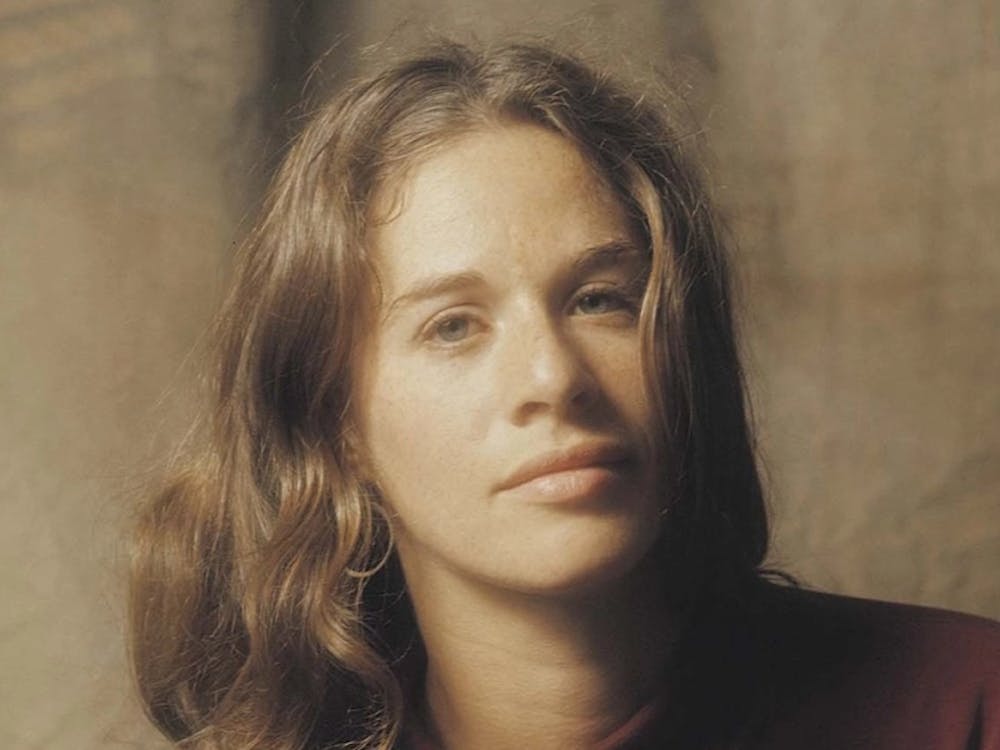Among the canon of soft-rock singer-songwriters of the ‘60s and ‘70s, Carole King seems out of place.
She started her music career penning pop songs at the Brill Building, a hit factory in Manhattan. At the time, she wrote with her lyricist and husband Gerry Goffin. After her marriage ended in 1968, King found herself in Los Angeles, where she discovered her knack for performing. Her second solo album, “Tapestry” (released in 1971), spurred her transformation into a pop icon and won four Grammys. Since then, her melodies have been passed down through generations of listeners.
She recorded stripped-back renditions of her old hits and wrote new songs, fusing her old life in the East Coast to her growing career out West. As a natural storyteller, her lyrics manage to feel sincere and unpretentious, but never plain. Her sound has a certain sensibility that perfectly describes the difficulties and joys of love. She knows how it feels to be alone, to have loved and lost. You can hear it in her straining voice quality and in the way the music seems to spill out of her.
“Tapestry” begins with “I Feel the Earth Move,” a radio gem driven by percussive honky-tonk piano. A few days after the single was released, the San Fernando earthquake struck California, and that strange coincidence massively boosted sales. The upbeat song mellows into “So Far Away,” a manifestation of the bittersweet desire to be present with someone physically and emotionally. King’s yearning for companionship is present in every chord. The flute melodies scattered throughout the track complement her wistful vocals, as the track slowly fades out.
Next on the album, “It’s Too Late” is a groovy break-up anthem wherein King sings about her marriage and musical partnership with Goffin. While respectful of their relationship, she acknowledges how they cannot save their fading romance. Her delivery is confident but reflective, a liberating reminder that breaking up is important in providing a sense of clarity. When I listen to “Home Again,” I imagine sitting at my windowsill, remembering how life was during childhood. King confesses to hitting rewind in her memories by asking, “Am I ever gonna make it home again?”
The message of “Beautiful” is very clear from its first lines: “Show the world all the love in your heart.” King sings about recovering her sense of wholeness after her divorce, not necessarily by meeting someone else or falling back in love, but rather through self-love. Next up, “Way Over Yonder” is a slow and soulful tune about King’s aspiration to reach something beyond herself, especially in a spiritual sense. It is about finding a place where she wants to be, but not being there yet.
King wrote “You’ve Got a Friend” for James Taylor, one of her closest collaborators in Los Angeles. In an interview with Paul Zollo, she remarked, “That song was as close to pure inspiration I’ve ever experienced. The song wrote itself. It was written by something outside of myself through me.”
Her experience of loneliness allowed her to witness the value of close relationships. “Where You Lead” is best known as the theme song for the sitcom “Gilmore Girls.” King recorded it with her daughter Louise as an anthem celebrating mother-daughter relationships, and in general, the people that color our lives. The track is pleasant and upbeat, which matches the sweet tones of the soft organ reverb.
“Will You Love Me Tomorrow?” was King and Goffin’s first hit for the Shirelles, and it was the tune that allowed them to become full time songwriters. Despite King’s longing for a lasting relationship, she accepts that it may end in shambles the next morning. She sounds weary, the voice of a woman who has experienced love and loss. “Smackwater Jack” is an uptempo shuffle about a fictional outlaw in the Wild West. The light joking atmosphere deviates from the pensive mood of the rest of the album.
The namesake for the album, “Tapestry” creates images of silver skies, yellow-green coats, and golden fruits. King uses these metaphors to poetically describe her life up to this point. The final track on the album is “(You Make Me Feel Like) A Natural Woman,” which King wrote with Goffin for Aretha Franklin. The words, “Before the day I met you, life was so unkind, but you’re the key to my piece of mind,” pay tribute to her closest relationships. King seems the most comfortable at this point, freed from self-doubt and inspired to live another day because of her love.
This album has stuck with me through the highs and lows of my childhood and my journey into young adulthood. When I first forayed into songwriting, I listened through all 12 songs on my boombox and attempted to transcribe the notes by ear. Over time, I started to appreciate the cohesion of the album, and how it told a story of love, loss and friendship.
It seemed to mirror the ups and downs of my life. As a scrappy 10-year-old, I tried to emulate the raspy resonance of King’s voice and write in her style. Usually, one little melody or chord progression eventually evolved into a full song. I penciled in time to daydream in my planner and allowed my mind to wander around aimlessly, then shuffled over to a practice room to write out my thoughts. In a way, King inspired me and many other aspiring songwriters to speak from personal experience and to be unafraid with that expression.
King possessed an elusive magic in her songwriting that inspired others to connect and create intimacy, to heal wounds. All she had to do was pick up the pieces of her life and translate them into song.
Get The Chronicle straight to your inbox
Sign up for our weekly newsletter. Cancel at any time.

